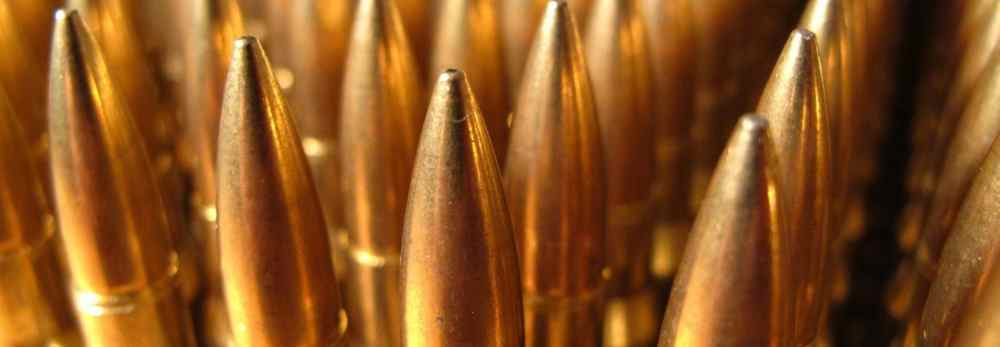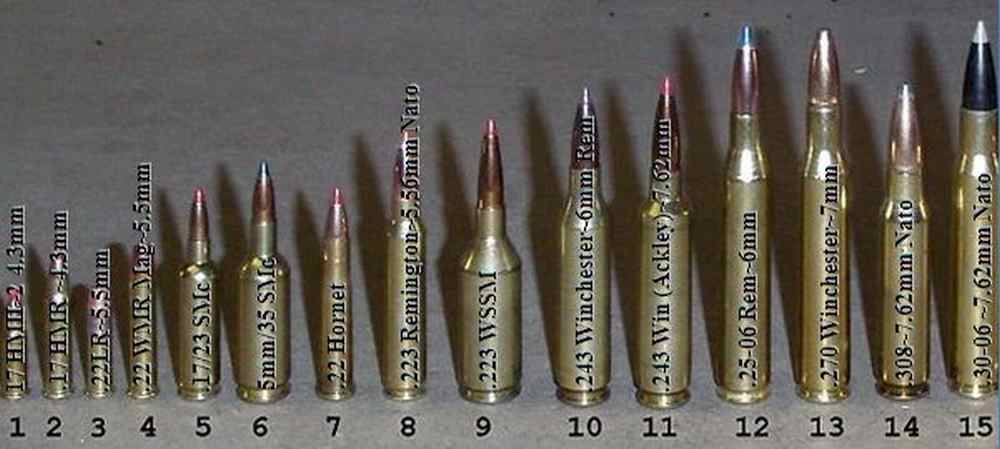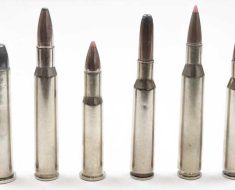“Secure your ammo, secure your future.”
Proper Storage Techniques for Rifle Ammunition
When it comes to owning and storing rifle ammunition, safety should always be the top priority. Proper storage techniques not only ensure the longevity of your ammunition but also prevent any accidents or mishaps. In this article, we will discuss some effective ways to store rifle ammunition safely and securely.
One of the most important factors to consider when storing rifle ammunition is the environment in which it will be kept. Ammunition should be stored in a cool, dry place away from any sources of heat or moisture. Extreme temperatures can cause the ammunition to deteriorate, affecting its performance and reliability. It is also important to keep ammunition away from direct sunlight, as UV rays can degrade the materials over time.
Another key aspect of proper ammunition storage is the container in which it is kept. Ammunition should be stored in a sturdy, lockable container that is specifically designed for storing firearms and ammunition. This will not only prevent unauthorized access but also protect the ammunition from any potential damage. It is important to keep the container locked at all times, especially if there are children or pets in the household.
When storing rifle ammunition, it is crucial to keep it organized and properly labeled. This will not only make it easier to locate specific types of ammunition but also help you keep track of expiration dates and usage. It is recommended to store different types of ammunition separately to avoid any confusion or mix-ups. Additionally, labeling each container with the type of ammunition and the date of purchase can help you keep track of its shelf life.
In addition to proper storage containers, it is also important to consider the type of shelving or racks on which the ammunition will be stored. Ammunition should be stored on sturdy, flat surfaces that are not prone to tipping or collapsing. It is best to avoid storing ammunition on metal surfaces, as this can cause corrosion over time. Wooden shelves or racks are ideal for storing ammunition, as they provide a stable and secure base.
Proper ventilation is another important factor to consider when storing rifle ammunition. Ammunition should be stored in a well-ventilated area to prevent any buildup of moisture or humidity. This will help prevent any rust or corrosion from forming on the ammunition, ensuring its longevity and reliability. It is also important to periodically check the storage area for any signs of moisture or damage and address any issues promptly.
In conclusion, proper storage techniques are essential for maintaining the longevity and safety of rifle ammunition. By storing ammunition in a cool, dry place, using sturdy containers, keeping it organized and labeled, and ensuring proper ventilation, you can ensure that your ammunition remains in top condition for years to come. Remember, safety should always be the top priority when it comes to storing rifle ammunition. By following these guidelines, you can enjoy peace of mind knowing that your ammunition is stored safely and securely.
Importance of Temperature and Humidity Control in Ammunition Storage
When it comes to storing rifle ammunition, ensuring longevity and safety is crucial. Proper storage not only helps maintain the quality and performance of the ammunition but also prevents accidents and mishaps. One of the key factors that can significantly impact the shelf life of ammunition is temperature and humidity control.

Ammunition is sensitive to changes in temperature and humidity. Extreme temperatures can cause the gunpowder to deteriorate, affecting the performance and reliability of the ammunition. High humidity levels can lead to moisture absorption, which can cause the gunpowder to clump together or degrade over time. On the other hand, low humidity levels can cause the brass casing to become brittle and prone to cracking.
To ensure the longevity of your rifle ammunition, it is essential to store it in a cool, dry place. Ideally, the storage area should have a temperature range of 50-70 degrees Fahrenheit and a humidity level of 40-50%. This will help prevent the gunpowder from deteriorating and the brass casing from becoming damaged.
One of the best ways to control temperature and humidity in your ammunition storage area is to use a dehumidifier and a temperature-controlled storage cabinet. A dehumidifier helps remove excess moisture from the air, while a temperature-controlled cabinet helps regulate the temperature to ensure it stays within the optimal range.
If you don’t have access to a dehumidifier or a temperature-controlled cabinet, you can also use silica gel packets or desiccant packs to absorb excess moisture in the storage area. These packets are inexpensive and can be easily placed in the ammunition storage containers to help maintain the ideal humidity level.
It is also important to avoid storing ammunition in areas that are prone to extreme temperature fluctuations, such as attics or basements. These areas can experience drastic changes in temperature and humidity, which can be detrimental to the longevity of your ammunition.
In addition to temperature and humidity control, it is also important to store your rifle ammunition in a secure and safe manner. Make sure to store the ammunition in a locked cabinet or safe to prevent unauthorized access. This will not only protect your ammunition from theft but also prevent accidents involving children or inexperienced individuals.
When storing rifle ammunition, it is important to follow the manufacturer’s recommendations for storage and handling. Different types of ammunition may have specific storage requirements, so make sure to read the instructions carefully before storing your ammunition.
By taking the necessary precautions and following proper storage guidelines, you can ensure the longevity and safety of your rifle ammunition. Proper temperature and humidity control, along with secure storage practices, will help maintain the quality and performance of your ammunition for years to come. So, take the time to invest in the right storage solutions and protect your investment in rifle ammunition.
Best Practices for Organizing and Labeling Ammunition in a Locker
When it comes to storing rifle ammunition, proper organization and labeling are key to ensuring safety and effectiveness. Whether you are a seasoned gun owner or just starting out, it is important to follow best practices for organizing and labeling your ammunition in a locker. By doing so, you can prevent accidents, keep track of your inventory, and easily access the ammunition you need when you need it.
One of the first steps in organizing your ammunition is to separate it by caliber. This will help you quickly identify the type of ammunition you are looking for and prevent any mix-ups that could lead to dangerous situations. You can use plastic bins or dividers to keep each caliber separate and easily accessible. Labeling each bin or divider with the caliber will further help you stay organized and ensure that you are using the correct ammunition for your rifle.
In addition to separating your ammunition by caliber, it is also important to store it in a secure and dry location. A locker specifically designed for storing ammunition is ideal, as it will provide the necessary protection from moisture, dust, and other elements that could potentially damage your ammunition. Make sure to keep your locker locked at all times to prevent unauthorized access and ensure the safety of those around you.
When labeling your ammunition, be sure to include important information such as the caliber, manufacturer, and date of purchase. This will help you keep track of how old your ammunition is and when it needs to be replaced. It is also a good idea to include any special instructions or warnings on the label, such as whether the ammunition is corrosive or should be stored at a certain temperature.
Another important aspect of organizing and labeling your ammunition is to regularly inspect and inventory your stock. This will help you identify any expired or damaged ammunition that needs to be disposed of properly. By keeping track of your inventory, you can also avoid running out of ammunition when you need it most and ensure that you are always prepared for any situation.
In conclusion, longevity in the locker when storing rifle ammunition safely and effectively requires proper organization and labeling. By separating your ammunition by caliber, storing it in a secure location, and labeling each box or bin with important information, you can prevent accidents, keep track of your inventory, and easily access the ammunition you need. Regularly inspecting and inventorying your stock will further help you maintain the safety and effectiveness of your ammunition storage. By following these best practices, you can ensure that your ammunition remains in top condition and ready for use whenever you need it.
How to Extend the Shelf Life of Rifle Ammunition
When it comes to storing rifle ammunition, longevity is key. Proper storage not only ensures that your ammunition remains safe to use but also extends its shelf life. Whether you are a seasoned hunter or a recreational shooter, knowing how to store your rifle ammunition safely and effectively is essential.
One of the most important factors in maintaining the longevity of your ammunition is controlling the environment in which it is stored. Ammunition should be kept in a cool, dry place away from direct sunlight and extreme temperatures. High temperatures can cause the gunpowder to deteriorate, while moisture can lead to corrosion of the casing and primer. Storing your ammunition in a climate-controlled environment, such as a gun safe or ammo can, will help protect it from these damaging elements.
Another key aspect of proper ammunition storage is keeping it organized and easily accessible. Storing your ammunition in its original packaging or in labeled containers will help you keep track of what you have and when it was purchased. This will also make it easier to rotate your stock, ensuring that older ammunition is used first before newer purchases. Additionally, keeping your ammunition organized will help prevent accidental mix-ups and ensure that you are using the correct caliber for your rifle.
When storing your rifle ammunition, it is important to consider the type of container you are using. Metal ammo cans are a popular choice for storing ammunition due to their durability and ability to seal out moisture. Plastic containers can also be used, but they may not provide as much protection against the elements. Whichever type of container you choose, make sure it is sturdy and has a tight-fitting lid to prevent moisture from seeping in.
In addition to controlling the environment and using the right containers, proper handling of your ammunition is crucial for maintaining its longevity. When handling your ammunition, be sure to avoid dropping or mishandling the cartridges, as this can cause damage to the casing and primer. It is also important to avoid exposing your ammunition to harsh chemicals or solvents, as these can degrade the components of the cartridge.
Regularly inspecting your ammunition for signs of damage or corrosion is another important step in ensuring its longevity. Look for any dents, cracks, or discoloration on the casing, as these can indicate that the cartridge is no longer safe to use. If you notice any of these signs, it is best to dispose of the ammunition properly and replace it with new cartridges.
By following these tips for storing rifle ammunition safely and effectively, you can extend the shelf life of your ammunition and ensure that it remains safe to use. Proper storage, organization, and handling of your ammunition are essential for maintaining its longevity and ensuring that it performs reliably when you need it most. So take the time to properly store your rifle ammunition, and you will be rewarded with ammunition that is ready to go whenever you are.
Safety Measures to Prevent Accidents and Damage in Ammunition Storage Lockers
When it comes to storing rifle ammunition, safety is paramount. Proper storage not only prevents accidents but also ensures the longevity and effectiveness of the ammunition. In this article, we will discuss some safety measures to prevent accidents and damage in ammunition storage lockers.
One of the most important factors to consider when storing rifle ammunition is temperature. Ammunition should be stored in a cool, dry place to prevent degradation. Extreme temperatures can cause the gunpowder to break down, leading to misfires or even explosions. It is recommended to store ammunition in a climate-controlled environment to maintain its integrity.
Humidity is another factor that can affect the quality of rifle ammunition. High humidity can cause the casings to corrode, leading to malfunctions in the firearm. To prevent this, it is important to store ammunition in a low-humidity environment. Using desiccants or silica gel packs can help absorb excess moisture and keep the ammunition dry.
Proper organization is key to safe and effective ammunition storage. Keep different types of ammunition separated and clearly labeled to avoid confusion. This will help prevent loading the wrong ammunition into a firearm, which can be dangerous. Additionally, storing ammunition in its original packaging or in labeled containers will help you easily identify and access the right ammunition when needed.
When storing rifle ammunition, it is important to keep it away from children and unauthorized individuals. Locking your ammunition storage locker with a secure padlock or combination lock will prevent unauthorized access. It is also a good idea to store the keys or combination in a separate, secure location to further prevent accidents.
Regular inspection of your ammunition storage locker is essential to ensure its safety and effectiveness. Check for signs of damage or corrosion on the ammunition casings. If you notice any issues, it is best to dispose of the ammunition properly and replace it with new, undamaged rounds. Inspecting your storage locker regularly will help you catch any potential problems before they escalate.
Proper ventilation is crucial when storing rifle ammunition. Ammunition emits gases as it ages, which can build up in a confined space and pose a safety hazard. Make sure your storage locker has adequate ventilation to allow these gases to dissipate. This will help prevent the risk of explosions or other accidents due to gas buildup.
In conclusion, proper storage of rifle ammunition is essential for safety and longevity. By following these safety measures, you can prevent accidents and damage in your ammunition storage locker. Remember to store ammunition in a cool, dry environment, keep it organized and labeled, restrict access to unauthorized individuals, inspect your storage locker regularly, and ensure proper ventilation. By taking these precautions, you can ensure that your rifle ammunition remains safe and effective for years to come.






